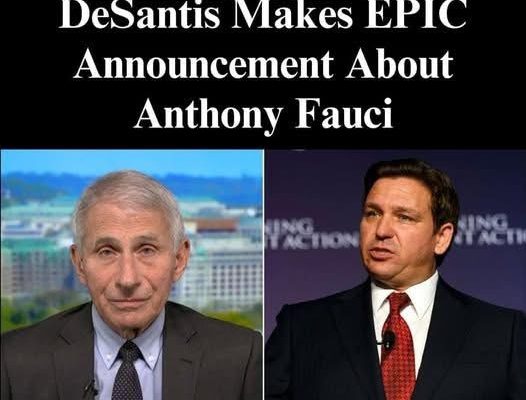DeSantis: Biden’s Pardons Raise More Questions Than Answers
Florida Governor Ron DeSantis recently weighed in on former President Joe Biden’s controversial preemptive pardons, including the one granted to Dr. Anthony Fauci. Speaking at a press conference, DeSantis highlighted the potential ripple effects of these pardons—especially at the state level—and suggested they may actually invite increased scrutiny rather than shield individuals from accountability.
When asked whether state prosecutors could still pursue legal action despite a federal pardon, DeSantis called it a “good question,” pointing out that Biden’s move could unintentionally open the door for more investigations. “Rather than closing the book on Fauci, this pardon might just bring more chapters,” he remarked.
DeSantis also referenced a recent report from the Department of Government Efficiency, an initiative backed by entrepreneur Elon Musk, which revealed a $180,000 expense for a Fauci commemoration at the National Institutes of Health. “What exactly are we commemorating?” DeSantis questioned, casting doubt on the appropriateness of honoring Fauci amid ongoing controversies.
The governor didn’t hold back in his critique of Fauci’s leadership during the pandemic. “At best, Fauci made significant errors when the nation needed strong guidance,” he said, adding that Fauci’s heavy media presence raised concerns about whether he was more focused on publicity than data-driven decision-making.
DeSantis argued that Biden’s preemptive pardon could provoke greater interest from state attorneys general, who may now feel compelled to launch their own investigations. “If the federal government had pursued charges, local biases in D.C. might have shaped the outcome,” DeSantis noted. “But at the state level, the legal landscape and jury pools are different—potentially leading to a very different path forward.”
He hinted that Florida, among other states, might soon initiate probes. “I don’t think this story ends here. I wouldn’t be surprised if Florida’s attorney general digs deeper—and other states follow suit,” DeSantis warned.
DeSantis isn’t alone in raising these concerns. Journalist Matt Taibbi, speaking on a recent podcast, echoed similar sentiments, explaining that preemptive pardons can have unexpected consequences. Taibbi highlighted that once a pardon is granted, the recipient loses the right to invoke the Fifth Amendment to avoid self-incrimination, meaning they may be compelled to testify before Congress or grand juries.
“This legal twist could actually lead to more transparency,” Taibbi said, “not less. In trying to protect certain individuals, the administration might have opened the door wider to uncovering the full truth.”
Legal experts have also noted that while presidential pardons cover federal offenses, they do not prevent state-level legal actions. This distinction keeps alive the possibility of prosecutions under state law depending on the evidence.
At the heart of this debate is a growing public demand for accountability, especially regarding how government officials handled the pandemic’s most critical moments. Whether these pardons will halt investigations or fuel them further remains uncertain—but one thing is clear: the conversation about leadership, responsibility, and transparency is far from over.



